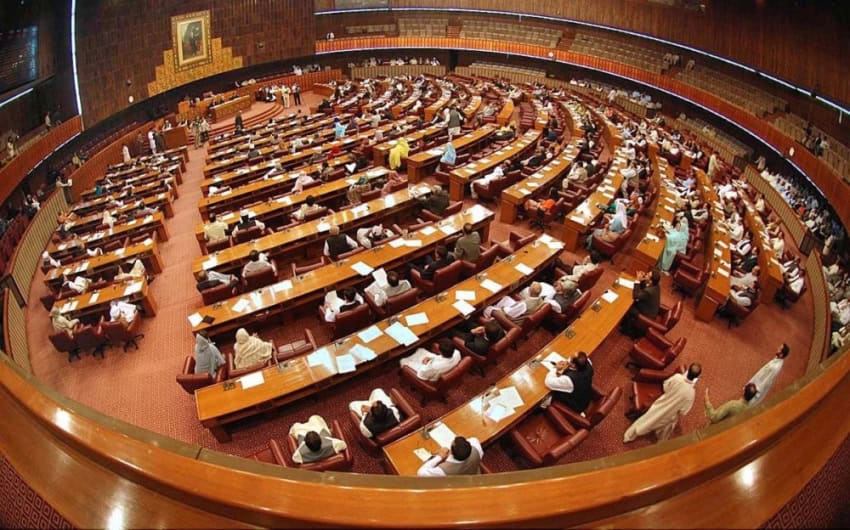ISLAMABAD – The National Assembly on Thursday passed the Anti-Terrorism (Amendment) Bill, 2020 to fulfill the international obligations against terror financing after incorporating the amendments proposed by the Senate.
The bill was moved in the House by Advisor to the Prime Minister on Parliamentary Affairs Dr Babar Awan. The bill was passed by the National Assembly on Wednesday with the majority vote and sent to Senate for the approval. The Senate on the same day referred the bill to the committee concerned for deliberation.
The committee met on Thursday before the session of the Senate and proposed amendments in the bill.
According to committee Chairman Senator Javed Abbasi, Minister for Law and Justice Farogh Naseem also supported the amendments proposed by the opposition.
As per the constitution, the bill passed by the National Assembly is sent to Senate of Pakistan for approval, and if the Senate proposes amendments in it, then the bill goes back to the National Assembly again for approval.
The Anti-terrorism (Amendment) Bill, 2020 aimed to fulfill the obligation of the Financial Action Task Force (FATF) so that Pakistan could be excluded from the grey list.
As per the Federal Legislative List provided in the Fourth schedule of the Constitution of Islamic Republic of Pakistan 1973, the federal government for compliance of international treaties, conventions and agreements and international arbitration can make legislations and rules to enforce such decisions.
The bill provides that any refusal or non-compliance of the orders of the federal government under section 2 of the United Nations (Security Council) Act, 1948 was a punishable offence.
The house also passed another bill the United Nations (Security Council) (Amendment) Bill, 2020 after it was passed by the Senate.
The bill aimed at ensuring effective implementation of the resolutions of the UN Security Council.
According to statements of objects and reasons of the bill, the implementation of the obligations of the resolutions adopted by the UNSC under Chapter VII of the United Nations Charter were fulfilled through the United Nations (Security Council) Act, 1948 (XIV of 1948). Under the said Act, the federal government passes orders, directing authorities in Pakistan to implement various measures in the Security Council resolutions, including the freezing and seizure of assets, travel ban and arms embargo.
The Act does not contain an indemnity clause to provide protection to the persons implementing in good faith, the orders passed under the Act. Furthermore, there is a requirement to give powers to the federal government to make rules for carrying out the purposes of the bill. In addition, the power to issue orders under the bill needs to be delegated by the federal government to ensure that the orders are issued in a timely manner, within a matter of a few hours, as required by the Security Council.
Finally the provision for punishment of persons offending against the order issued under the Act is redundant as neither the punishment nor the mechanism for its enforcement is provided under the Act.
The issue is being taken up separately through corresponding amendment in the Anti-Terrorism Act, 1997.
The bill, therefore, seeks to amend the United Nations (Security Council) Act, 1948 (XIV of 1948) in order to ensure the effective implementation of the resolutions of the United Nations Security Council.
Foreign Minister Shah Mahmood Qureshi spoke during the Senate session and said they want to bring Pakistan onto the White List from the Grey List. But India is trying to put us on the Black List, he said.
The FATF will be deciding Pakistan’s fate in October and it depends on whether it can comply with a list of measures it had suggested to curb terror financing and money laundering in the country.













